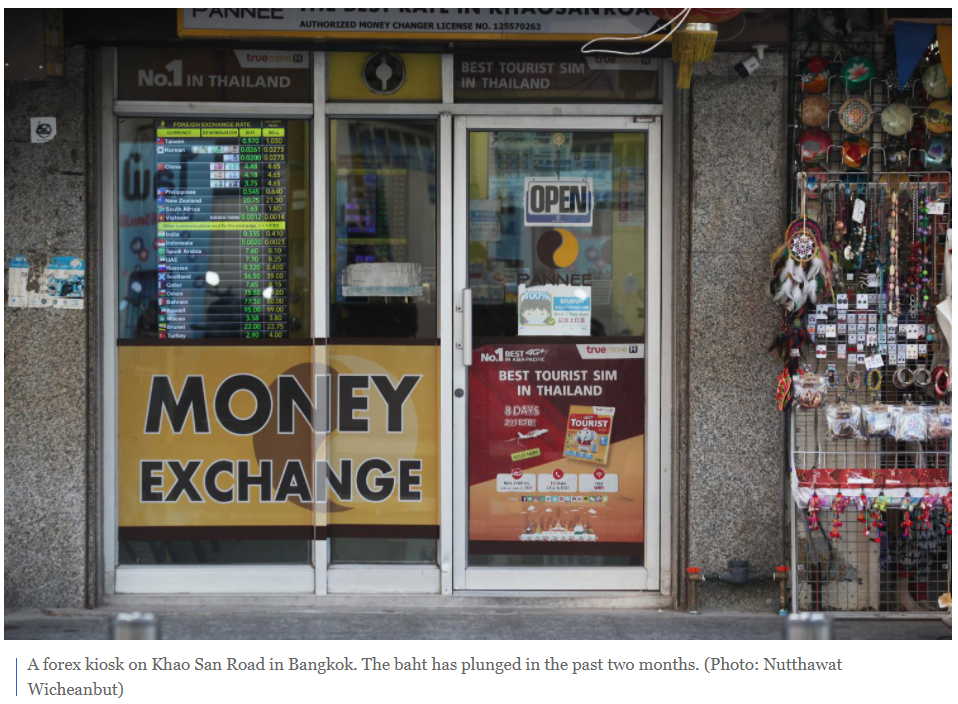Thailand: Exports see surge as baht declines
The weakening baht against the US dollar has propped up the export sector, which could register higher growth this year if Thailand can overcome challenges ranging from the ongoing pandemic to shortages of containers and labour.
Baht trading on Wednesday opened at 33.45 baht against the dollar, moving in a range of 33.34-33.47 during day trade before closing at 33.36 baht.
The baht has depreciated by 10.4% against the dollar so far this year, becoming Asia’s worst performing currency, according to a Reuters report on Tuesday.
Export boost
Chaichan Chareonsuk, president of the Thai National Shippers’ Council (TNSC), said the weakening baht is considered a boon for exports in the remaining months of the year, urging exporters who have already secured purchase orders to accelerate production and shipments as quickly as possible.
Despite the weak baht, TNSC only forecasts 10% export growth this year because of a delay in the government’s vaccine distribution, the ongoing pandemic spread and lingering obstacles like shortages of containers and labour as well as high freight rates.
Sanan Angubolkul, chairman of the Thai Chamber of Commerce, said the baht’s weakness is good not only for exports, but also farmers who will be entitled to earn higher income.
“If we can contain the spread of Covid-19, the chamber expects exports have a chance to grow by as high as 15%,” he said.
Tim Leelahaphan, an economist at Standard Chartered Bank (Thai), said the weakening baht against the US dollar has helped exports. However, strong shipment growth in the first half was mainly supported by the global economic recovery and higher demand from foreign trade partners rather than foreign exchange, he said.
In June, exports surged by 43.8% year-on-year, the highest uptick in 11 years. Exports rose for a fourth consecutive month after gains of 41.6% in May, 13.1% in April and 8.47% in March following a 2.59% contraction in February.
Outbound shipments fetched US$23.7 billion, the highest growth rate since June 2010.
The baht’s depreciation also affected local importers, who are concerned the decline is outpacing other Asean currencies. In just over a month, the baht plunged from above 31 to the dollar to around 33 baht, Mr Tim said.
“The economic downturn caused by the pandemic should be a good time for businesses to import machinery and equipment to improve productivity once the economy recovers. Given the baht’s weakening, they may be restricted in doing this,” he said.
He forecasts the baht to appreciate briefly against the dollar the remainder of this year, with a mass vaccination push, strong exports and emergent tourism in the fourth quarter supporting the baht.
Mr Tim said the falling baht should not significantly impact foreign capital outflow, despite net selling from foreigners in the Thai bourse of around 100 billion baht this year.
Source: https://www.bangkokpost.com/business/2164615/exports-see-surge-as-baht-declines


 English
English




